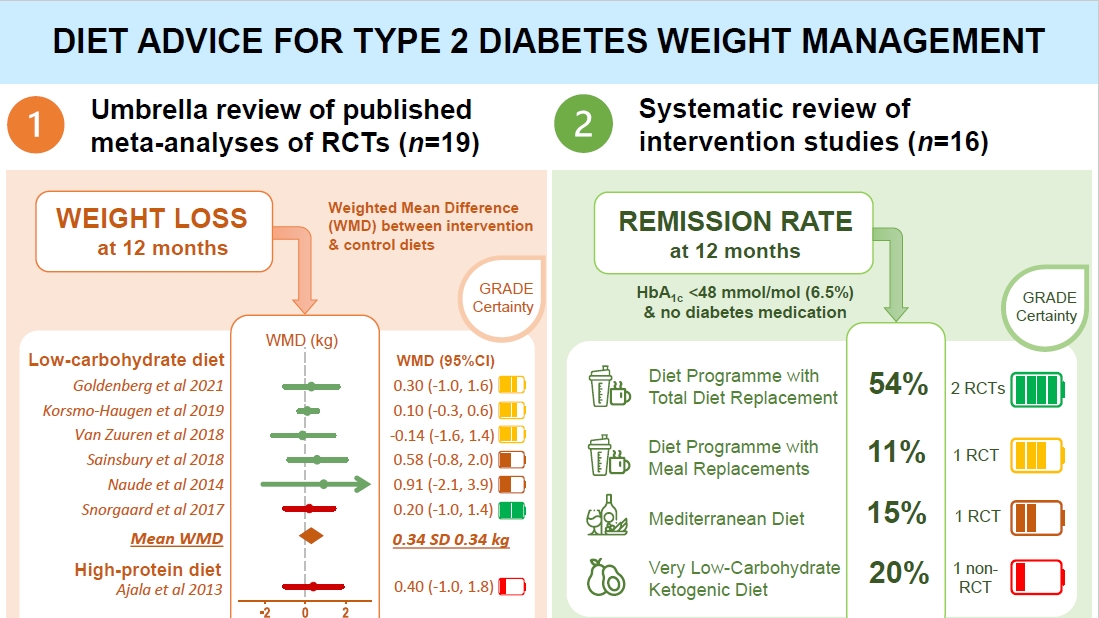
As the global prevalence of type 2 diabetes continues to rise, health professionals and patients alike are turning to novel and effective strategies to manage the condition. One such strategy that has shown promising results is nutrition therapy. This approach highlights the importance of personalized nutrition counseling and the role of diet and lifestyle changes in achieving remission for prediabetes and type 2 diabetes. However, it is important to note that remission is rarely permanent, and most patients develop type 2 diabetes again after 5 years.
The Importance of Personalized Nutrition Therapy
A key element in effective diabetes management is personalized nutrition therapy. This approach, which is highlighted in both German and international guidelines, involves tailoring nutritional advice to the individual patient based on their specific needs and health status. This personalization can have a significant impact on the patient’s ability to achieve remission. Unfortunately, this crucial service is not typically covered by standard health insurance, creating a barrier for many patients.
The Role of Digital Apps and Telemedicine
In an increasingly digital world, technology has a key role to play in supporting patients in managing their condition. Digital apps and telemedicine are proving to be valuable tools in this regard. As per a systematic literature review, technology-enabled low carbohydrate dietary interventions have shown to support individuals in self-managing their condition and possibly achieving remission.
The Power of Diet and Exercise
A healthy diet complemented with increased physical activity has been shown to play a crucial role in achieving remission for prediabetes. Studies, including one by the University of Alberta, are exploring if a combination of diet and exercise can halt the progression of type 2 diabetes or even lead to remission. This is an enlightening example of how lifestyle modifications can have a profound impact on managing and potentially reversing diabetes. An article in The Guardian also shares a personal experience of reversing type 2 diabetes through diet and lifestyle changes, further highlighting the potential of these interventions.
Remission: A New Therapeutic Objective
Given the potential of nutrition therapy and lifestyle changes in managing diabetes, remission should be considered the new therapeutic objective for individuals with prediabetes. Achieving remission can significantly minimize the complication rate for patients, improving their quality of life. Notably, the chances of remission increase with a reduction in body weight and waist circumference.
The Controversy Surrounding Dietary Approaches
Despite the promising results, there is controversy surrounding dietary approaches to diabetes treatment. This is in part due to the influence of pharmaceutical companies on diabetes management. However, this should not overshadow the potential benefits of nutrition therapy and lifestyle changes. As discussed by health journalist Gary Taubes, low carbohydrate diets have shown impressive results in the management of type 2 diabetes.
The Feasibility of Lasting Remission
While the potential of achieving remission through nutrition therapy and lifestyle changes is promising, the question of lasting remission remains. Experts have differing views on this, with some supporting the feasibility of lasting remission while others question it. However, evidence from successful studies on low-calorie diets and the Diabetes Remission Clinical Trial (DiRECT) in the UK supports the prospect of long-term remission.
In conclusion, nutrition therapy, supported by personalized counseling, diet, exercise, and digital tools, holds significant potential in managing type 2 diabetes and achieving remission. However, the conversation on lasting remission continues. As we move forward, it is essential to prioritize patient-centered approaches, consider remission as a therapeutic objective, and continue to explore the potential of dietary and lifestyle interventions in managing this global health concern.
